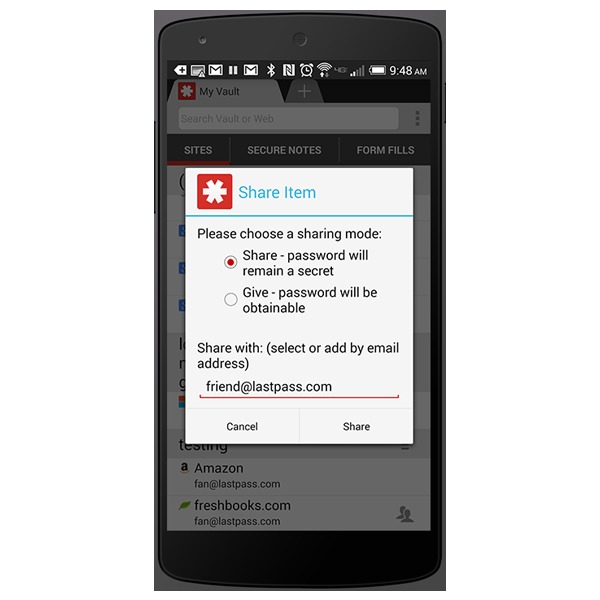
With the sheer number of accounts that we have nowadays, whether it be social networks, emails or various apps, having a password manager is always a good idea, lest you forget any of your account passwords. For some of these accounts, it’s also a good idea if you could securely share your passwords with people who would be needing to access it on their own devices.
One of the most popular password managers on Android devices is LastPass. And the newest update to the app now gives you the ability to share passwords and notes to friends and family members. While that may sound scary because of course you would not always want other people to have access to your passwords, there are times when sensitive information need to be shared, but not through SMS or email or any messaging service. Sharing it through a secure app is the way to go, especially if you co-manage accounts like with financial apps or TV streaming services or even social networks as well.
Not only can you share passwords, but the feature also allows you to do so on your secure notes where you can save PIN codes, bank account numbers, and other useful but sensitive information. Just go to your LastPass vault, tap on a site or a note and select the share option. However, you can only share it with another LastPass user, so you make sure that whoever needs this information has also signed up. Once shared, the password or note will be synced in both vaults.
While the LastPass app is free from the Google Play Store, this sharing feature is only available for premium users. The service is for $12/year, so it’s not that expensive if you really need the sharing tool, as well as other added features as well. You can upgrade to the premium through in-app purchase.
SOURCE: LastPass










ID
federations (single-sign-on services and password managers) create a single
point of failure, not unlike putting all the eggs in a basket. It remembers all my passwords when un-hacked
and loses all my passwords to criminals when hacked. It could be considered mainly for
low-security accounts, not for high-security business. Needless to say, the strength of the
master-password is crucially important.